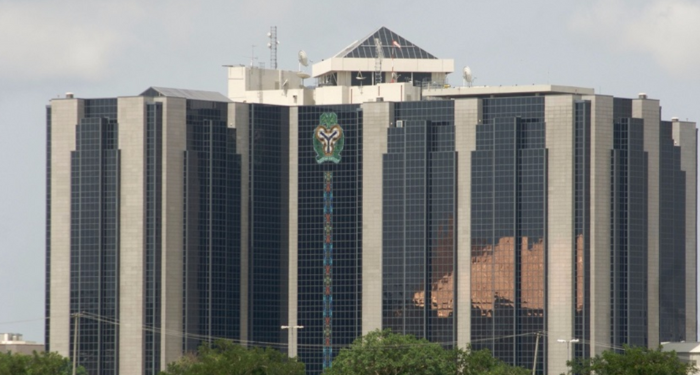The foreign exchange story in Nigeria is never short of drama. Every few months, something pops up that makes us ask the same old question: how did we get here again, biko?
The latest episode is the Central Bank of Nigeria’s forensic audit into undelivered FX forward contracts.
Strictly speaking, this is already yesterday’s gist. The market yawned and moved on from it and I found that quite surprising just given how material it is.
But pause for a second. When this news first surfaced, this message below made the rounds:
Dear CEOs, Outstanding Forwards:
It appears the CBN is refunding naira for the disputed forwards today. No interest. No adjustment for opportunity cost. Just the exact naira deposited more than two years ago.
Translation: positions that should have been closed at today’s 1,500 naira to the dollar were instead closed at around the same rate the contract was closed. Naira returned, no USD delivered, no compensatory interest paid.
Which brings us to the million-dollar question, or should we say the two-billion-dollar one: who is taking the hit, the banks or the customers?
Going back to the basics, what exactly is an FX forward?
Picture this. A company gives the CBN its naira today. In return, the CBN promises to deliver dollars in the future at a pre-agreed rate.
It is like paying for your flight six months in advance because you do not want to risk the price doubling later. A neat arrangement.
Until, of course, the airline cancels your ticket and offers you a refund in the exact same naira you paid years ago. You can imagine the look on your face.
The problem here: messy contracts, fake documentation and even messier controls.
Over the years, the CBN signed up to thousands of these deals. But when it came time to deliver the dollars, the paperwork did not match the promises.
Some contracts looked strange, others looked suspicious, and a few looked like they had been written in invisible ink.
So instead of quietly honouring everything and draining the reserves, the CBN said “hold on a minute” and brought in Deloitte. And Deloitte did not come for small talk.
They came for a forensic audit, digging into contracts, import records, Customs files, and even Forms M, the paperwork importers’ file to justify their demand for dollars.
What they found was enough to make anyone raise an eyebrow
- Some contracts were in one company’s name, but the Forms M were in another.
- Some importers asked for ten million dollars but were approved for much more.
- Items not allowed under Nigeria’s FX rules miraculously made it through.
- Milk importers without milk import licences suddenly had approvals.
- There were blank forms, wrong forms and even transactions booked against rejected applications.
In short, many of the contracts should never have existed.
So what did CBN do?
The CBN drew a line. Valid contracts where everything checked out were honoured. Invalid ones were cancelled. By most accounts, about five billion dollars worth of forwards were settled, while another two billion dollars were red-flagged.
For the disputed contracts, the naira originally deposited was refunded, but there was no interest and no foreign exchange delivered.
It was like getting your theatre ticket money back after the play was cancelled, except you bought it two years ago and ticket prices have quadrupled since.
And in cases where fraud or abuse was suspected, the files were sent to law enforcement. A few people may need to practice their EFCC interview faces.
Why not just pay everyone and move on? Because that would have been reckless. Paying out invalid contracts would have drained reserves, rewarded bad behaviour and left the CBN open to legal risks.
The CBN’s position is clear and final
The dust looks like it has settled, banks are not making noise, and any lobbying appears to be happening quietly behind closed doors.
But the message from the apex bank is obvious. No appeals. No second chances. Deloitte had the final word after giving everyone their day in the sun. The process is done. Case closed.
What this means going forward
This is not just about disputed contracts. It is a reset. If you want to bring forward contracts to the CBN in the future, your paperwork must be watertight.
Forms M and A, Customs records and approvals must all line up. No more “general goods.” No more approvals bigger than the imports. No more shortcuts.
Some will find this return to orthodoxy boring. But after the last brutal nine years, boring may be exactly what we need.
The CBN has promised to honour all legitimate obligations. The keyword is legitimate. If your paperwork is clean, you will get your dollars. If it is not, you will get a No and it might not be polite.
Drawing the line in the sand – For years, rules in Nigeria have been treated as suggestions. This move suggests the CBN wants to change that narrative.
The litmus test
We hope the CBN will remain firm on issues like this, and the real litmus test will be on the issue of regulatory forbearance granted to banks. This is September, and we have yet to see the 1H2025 results of most of the banks.
This wait had better be worth it. Forbearance in principle is supposed to last nine to twelve months. In Nigeria, it has become a forever story which has stretched into three years and counting.















Wether this is good or bad is the million dollar question but my own million naira question is wether or not the naira would, in the long run, gain something good from this